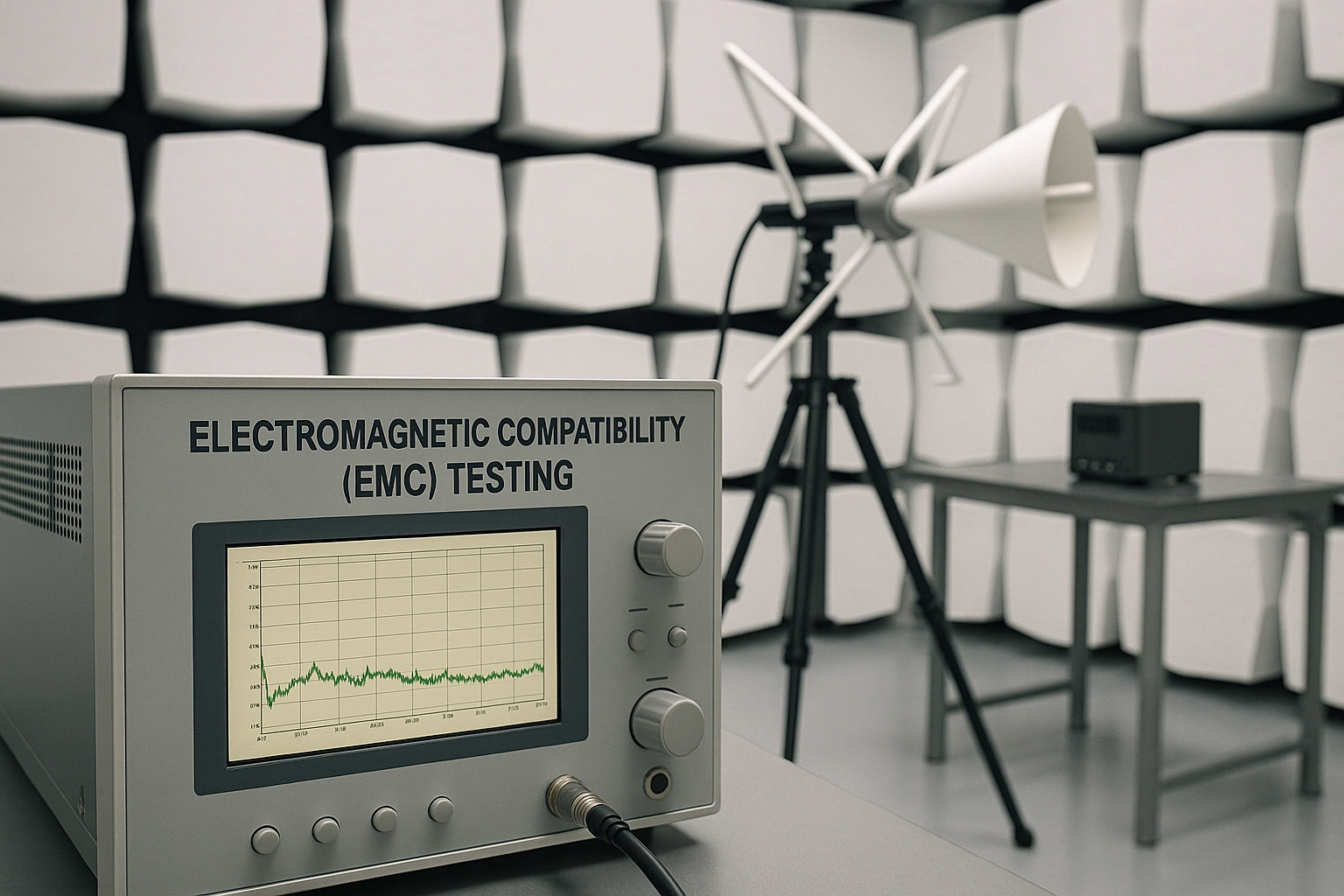ETSI EN 301 489 1 Automotive EMC Wireless Equipment Test
The ETSI EN 301 489-1 standard is a critical component in the development and certification of automotive wireless equipment. This standard aims to ensure that all electronic devices used within an automotive environment comply with electromagnetic compatibility (EMC) requirements, thereby minimizing interference between different components and systems.
Compliance with this standard is essential for manufacturers looking to meet regulatory requirements and ensure their products perform reliably in the harsh environments of modern automobiles. The test involves a series of procedures designed to assess the susceptibility and immunity of wireless devices against electromagnetic disturbances. This includes evaluating how well the device can function without causing or suffering from harmful interference.
The standard specifies various test methods aimed at identifying potential issues that could arise during design, manufacturing, and operation stages. It covers both conducted emissions and radiated emissions tests to ensure robust performance across all conditions encountered in real-world scenarios. By adhering strictly to these guidelines, engineers can optimize their designs early on, reducing costs associated with later modifications or recalls.
The testing process typically involves placing the device under test (DUT) into a controlled environment where specific types of electromagnetic interference are introduced. The system then measures how effectively the DUT handles this disturbance while ensuring minimal impact on surrounding electronic systems. This rigorous approach helps manufacturers create products that not only meet current standards but also anticipate future challenges as technology continues to evolve.
For quality managers and compliance officers, understanding ETSI EN 301 489-1 is crucial for effective management of product development cycles. They need to ensure all stages of the design process comply with these stringent requirements. For R&D engineers involved in creating innovative solutions within this sector, familiarity with this standard provides valuable insights into necessary considerations during early prototyping phases.
Understanding the intricacies of ETSI EN 301 489-1 also benefits procurement teams who must source components and materials that meet these criteria. Ensuring suppliers adhere to such standards ensures long-term compatibility between various parts, enhancing overall system reliability. Overall, mastery over this standard equips professionals across different roles within automotive manufacturing with the knowledge needed to produce safe, efficient, and reliable wireless equipment.
Industry Applications
| Device Type | Test Requirements |
|---|---|
| Onboard Diagnostics (OBD) systems | Evaluate susceptibility to interference from other vehicle components. |
| Telematics devices | Ensure robust communication despite varying electromagnetic environments. |
| Infotainment systems | Protect audio and video content from noise disruptions. |
| Navigation equipment | Avoid signal loss during rapid changes in vehicle speed or position. |
| Mobile communication devices | Maintain stable connectivity under diverse environmental conditions. |
Eurolab Advantages
At Eurolab, we pride ourselves on providing comprehensive testing services that exceed industry expectations. Our expertise in automotive EMC testing ensures our clients receive accurate results and reliable recommendations tailored specifically to their needs.
- Comprehensive Testing Capabilities: We offer a wide range of services encompassing all aspects of ETSI EN 301 489-1 compliance.
- State-of-the-Art Equipment: Utilizing cutting-edge facilities allows us to conduct precise and repeatable tests.
- Experienced Engineers: Our team comprises highly skilled professionals who stay updated on the latest developments in the field.
- Accurate Reporting: Providing detailed reports helps clients understand their test results comprehensively.
Our commitment to excellence has earned us a reputation as leaders in automotive testing. By choosing Eurolab, you gain access not only to top-notch facilities but also to the knowledge and experience needed to navigate today’s complex regulatory landscape successfully.
Why Choose This Test
- Ensures Regulatory Compliance: Meeting ETSI EN 301 489-1 helps avoid penalties for non-compliance.
- Promotes Product Safety: Ensuring devices do not cause or suffer from harmful interference enhances user safety.
- Enhances Reputation: Demonstrating adherence to stringent standards builds trust among customers and partners.
- Reduces Development Costs: Identifying issues early in the design phase saves time and resources later on.
- Prolongs Product Lifespan: Ensuring robust performance across all conditions extends the useful life of products.
- Increases Market Access: Compliance allows manufacturers to access wider markets without restrictions.





